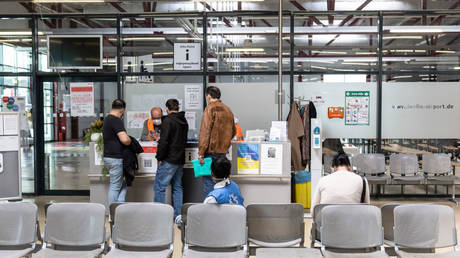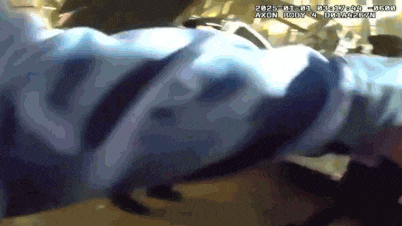ARTICLE AD BOX
JAPAN’s coast guard plane “was not clear to take off” at the time of crash, control tower transcripts have revealed.
The JAL aircraft carrying 379 people erupted in flames when it collided with a coastguard jet at Tokyo‘s Haneda Airport on Tuesday, leaving five dead.
 Alamy
Alamy AFP
AFP A firefighter investigates the debris of the Airbus A350 at Haneda Airport
A firefighter investigates the debris of the Airbus A350 at Haneda Airport AFP
AFP AFP
AFP

All 367 passengers and 12 crew members on board managed to flee the burning wreckage of the Japan Airlines aircraft.
But five passengers onboard the coastguard’s De Havilland Dash-8 died in the horror – with the captain said to be in a critical condition.
Transcripts from the crash suggest that Japan Airlines had been given permission to land.
But a coastguard source said its pilot received the green light to take off, the outlet said – contradicting the controller’s account of events.
According to previous recordings released by the Air traffic control, Japan Airlines was told to continue its approach to runway 34R at 17.43pm local time, and was given clearance to land at 17.45pm – two minutes before the collision occurred.
“Clear to land 34R Japan Airlines 516,” a controller can be heard saying in a recording.
In a recording from Haneda’s control tower apparently taken in the moments before the collision, a voice can be heard telling JAL’s flight to “continue approach”.
Japan Airlines said the aircraft recognised and repeated the landing permission from air traffic control before approaching and touching down.
Asked at a briefing on Tuesday whether the flight secured permission to land, the airline said: “Our understanding is that it was given.”
But the coastguard has declined to comment on the circumstances surrounding the crash – including whether the aircraft was stationary or moving when disaster struck.
Former Australian air traffic controller Michelle Robson suggested the coastguard aircraft wasn’t cleared to enter the runway before the crash.
She told 9News: “It appears it was told to hold short of the runway at the entry point.
“Normally a controller would be able to see both out of the tower, either with his eyes or using binoculars but it was at night time.
“So they do have additional safeguards which is the surface movement radar, which would have shown the aircraft moving.”
While she says it is hard to fully conclude what went wrong until the full report is released, there should be safeguards in place that could have prevented the crash.
Hiroyuki Kobayashi, a former JAL pilot and aviation analyst said “there is a strong possibility there was a human error”.
“Only one plane is generally allowed to enter the runway but even though landing clearance had been given, the Japan Coast Guard aircraft was on the runway,” he said.
Police said a special unit had been set up at the airport to probe the crash – and are now investigating possible professional negligence.
De Havilland Dash-8 was set help with rescue efforts following an earthquake in central Japan on New Year’s Day, before colliding with the JAL carrier.
The captain – the only survivor on the plane – was named as Captain Genki Miyamoto, 39.
He reportedly pulled himself from the wreckage before radioing for help, telling his base: “The aircraft exploded on the runway. I escaped.
“The [condition of the] other crew members is unknown.”
Television pictures caught the shocking moment as passengers and airport workers watched on in horror.
Footage from inside the burning passenger jet shows the moment screaming passengers battle through smoke to escape the flaming hell.
People were seen covering their faces with their hands or masks, as others were heard yelling in the background.
Another clip shows the moment the plane landed on the runway as it skidded across the tarmac with billowing smoke coming from the wing.
Images from broadcaster NHK showed flames apparently coming out of the plane’s windows and from beneath the aircraft.
The plane split into two halves as the fire burst through the dishevelled structure and tore it down.
Video later showed fire crews working to put out the blaze with streams of water and aiding the evacuation operation.
 Getty
Getty The airbus collided with a smaller coastguard aircraft at Tokyo’s Haneda Airport
The airbus collided with a smaller coastguard aircraft at Tokyo’s Haneda Airport People were seen covering their faces with their hands or masks
People were seen covering their faces with their hands or masks Five out of six people on board the De Havilland Dash-8 coastguard aircraft died in the incident
Five out of six people on board the De Havilland Dash-8 coastguard aircraft died in the incident.png)
 1 year ago
5
1 year ago
5








 English (US)
English (US)